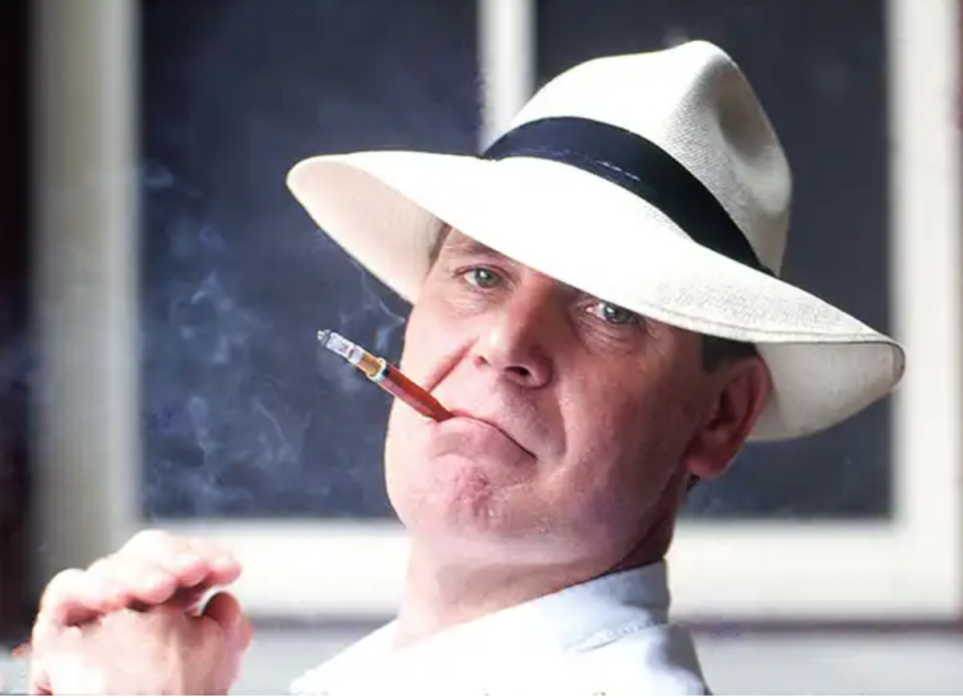Welcome to today’s edition of ShentonSTAGE Daily.
I want to pause for a moment of sincere reflection, but also celebration, today. On Saturday, I attended the funeral of Robert De Wynter, the long-time chairman of Dewynters Ltd (later Dewynters plc), a family publishing firm that he inherited from his father and turned into the West End’s premiere advertising agency that dominated the market through the 80s and 90s (and still continues today, if by no means as influential as it once was in a changing media and marketing landscape, and now under different ownership)
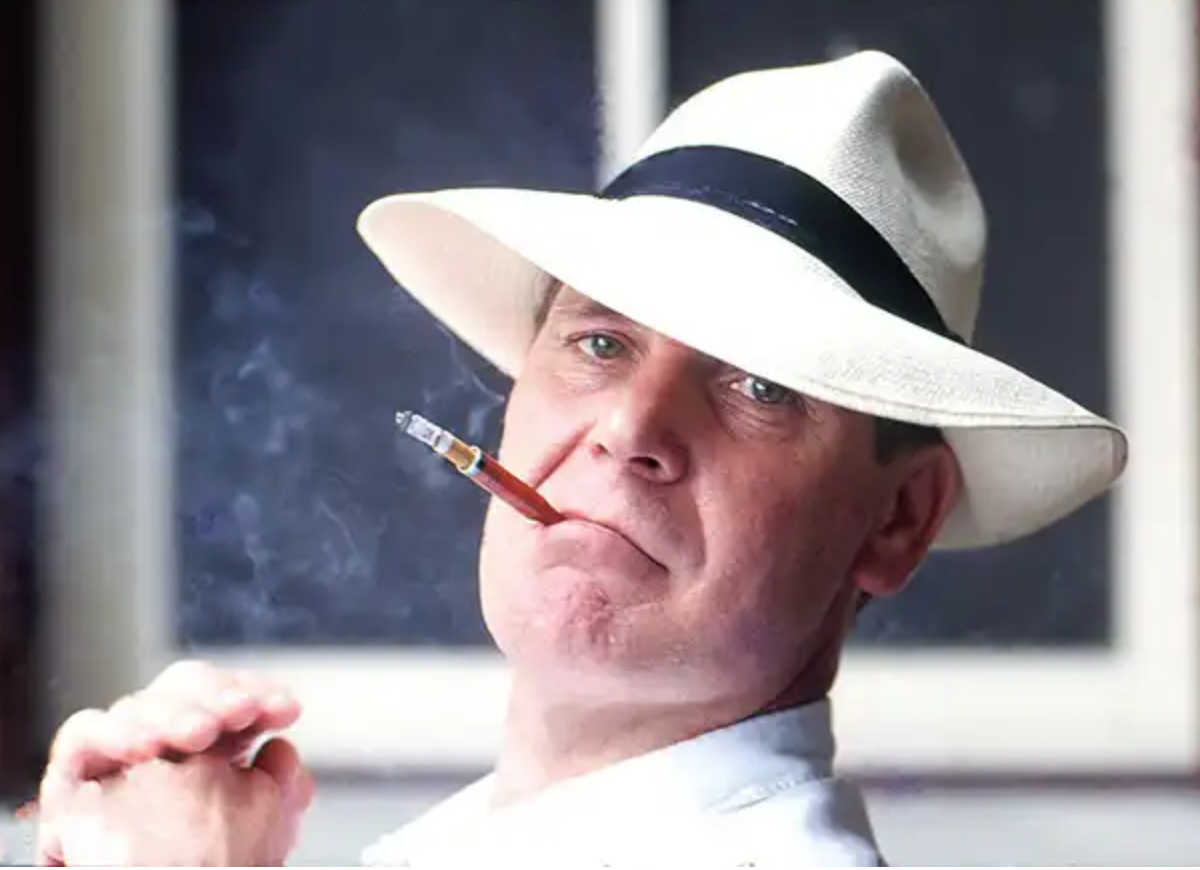
When Robert took it over, he brought on board Anthony Pye-Jeary (a former theatre press agent) as his managing director, and Russ Eglin, a genius visual artist, as his creative director. Together they presided over a pioneering period of Britain’s global influence on theatre, particularly in the field of musical theatre, with exports around the world of such titles as CATS, STARLIGHT EXPRESS, THE PHANTOM OF THE OPERA, LES MISERABLES and MISS SAIGON, whose Dewynters-designed logos became international brands.
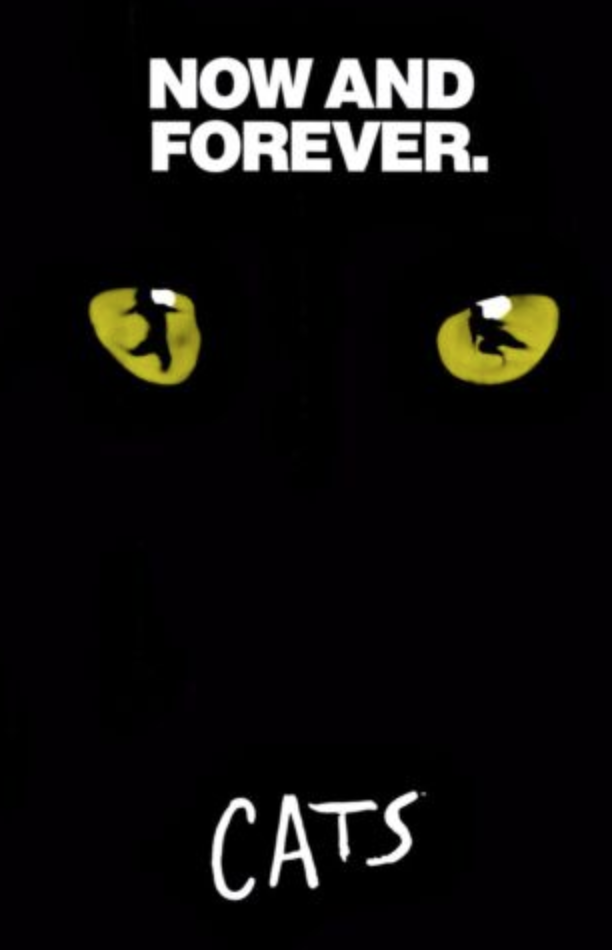
I joined the business in October 1986, fresh out of Cambridge University. It was my first full-time London job (i’d spent a year after graduating living in Cambridge, running the business affairs of the student newspaper STOP PRESS WITH VARSITY, which operated entirely commercially free of any University funding or support; I’d previously been its arts editor as a student).
I was interviewed for the job in the first round by Mary Williams, a stalwart of the company for many years that followed, who had previously written editorial for some of the souvenir brochures for the West End musicals that Dewynters speclalised in; and it was my job to run the publishing department that looked after those brochures and theatre programmes. My second interview was with Robert; early impressions were not great, as he was still at lunch at the hour I was asked to arrive, and my interview began over an hour late.
I’d find out that lunches were a big part of his day; and that he liked a drink (or five). He was also, at this time, a chain smoker — offices were not yet smoke-free zone — so there’d always be a cloud of fetid air floating in his office.
And although it turns out he was only 18 years older than me, he always seemed older, and he cultivated an air of eccentricity — more than one speaker at his funeral invoked the description “bonkers” — that put him at a distance from us.
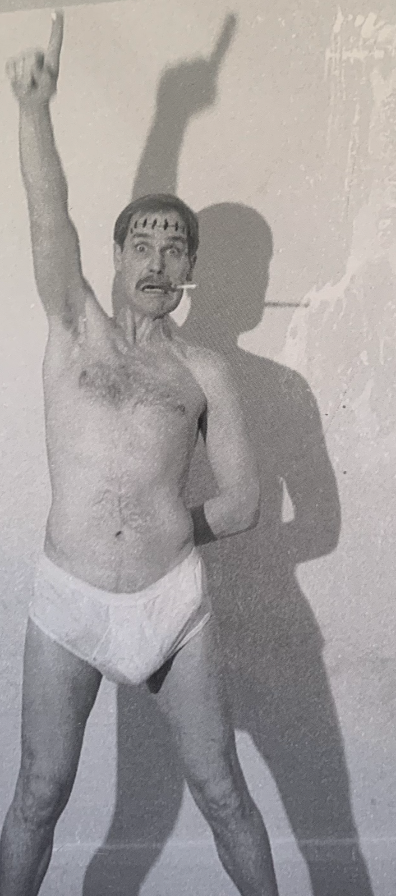
But I also found that underneath the bluff exterior (which hid his social insecurity) there was also a kind, unfailingly loyal man who nurtured and nourished my early career more than any other boss I’ve ever had since. He recognised my passion for the theatre, and my easy affinity with those that produced it. It was while working there that I first met industry leaders like Cameron Mackintosh, Bill Kenwright, Andrew Lloyd Webber (and his then chief executive Biddy Hayward), Robert Fox and too many more to mention.
I’d go on to work at Mackintosh’s office for a short period, became close personal friends with Kenwright that continues to this day, and for nearly 18 years, I shared an office with Hayward in her post-RUG life running a specialist entertainment photographic library, where I rented a desk.
It’s fair to say that those doors and opportunities opened for me only because of Dewynters. And the job also took me regularly to New York, where the company had established its own office on Broadway, and I helped coordinate and publish souvenir brochures for hit transfers (as well as couple of major flops, CHESS and CARRIE; I’m pictured below in the New York office) That began my life-long love for that city.
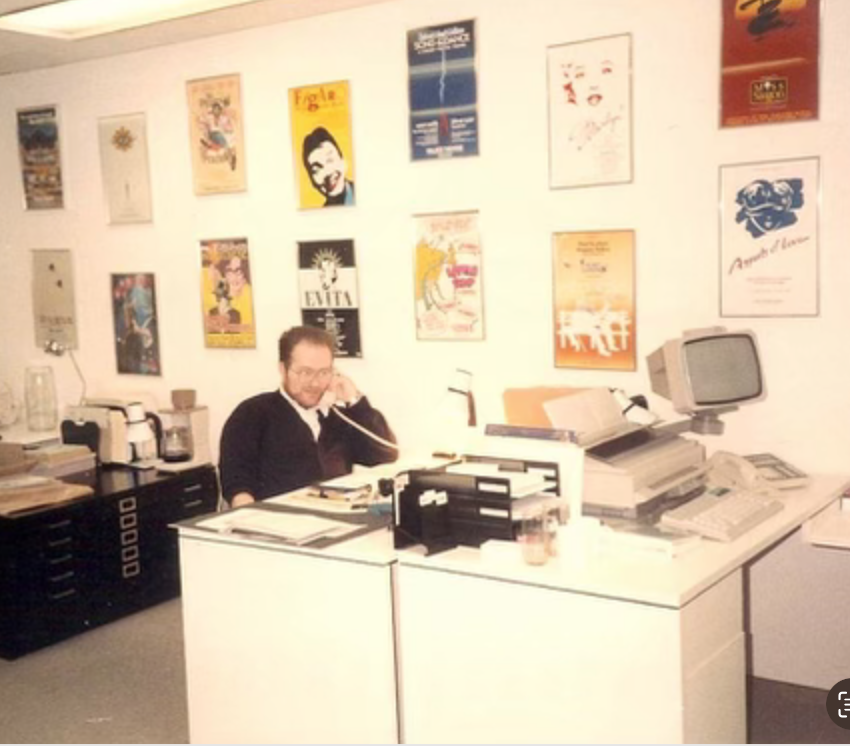
It also gave me key insights into the background workings of the theatre industry. I, however, was then an ambitious young man, the biggest part of which was to break into theatrical journalism and become a theatre critic. This was a pre-internet age, though, and opportunities were thin on the ground. So I bided my time at Dewynters, providing monthly interview features for the monthly PLAYS INTERNATIONAL magazine (founded and edited by Peter Roberts).
Then in 1990, I saw a job advertised in The Guardian (where my Dewynters job had also come from) to become editor at Listings Ltd, an independent editorial agency that supplied listings on arts and entertainment categories to clients that included The Guardian, Independent and Daily Mirror. As well as data on film releases and showing times, theatre, galleries, music and clubs, we also provided twice-weekly editorial panels that appeared with the listings in The Guardian.
It is from that platform that I first got exposure in a national newspaper. So I was, I thought, finally on the path I wanted to be on. A painful decade followed, though; not every boss was as supportive as Robert had been. I also felt that in leaving him, I’d let him down. But he would himself withdraw from active involvement in Dewynters by the millennium, when he got sober and found new purpose in life in recovery, bringing his organisational skills and nurturing encouragement to setting up recovery meetings, retreats and becoming chair of AA intergroup.
As I’ve previously mentioned here, I, too, have been a beneficiary of recovery programmes: not for alcohol, but in two separate fellowships that concentrate on emotional addictions and family trauma.
As part of my Step 9 amends, I actually wrote Robert a lon letter, thanking him for the role he’d played in my life; but I never sent it. After his death on Christmas Day, I shared it with his son Ben (whom I’ve known for many years, independently of his dad, as he was also a theatre producing partner with Sasha Regan at the Union Theatre, where I’d often met him).
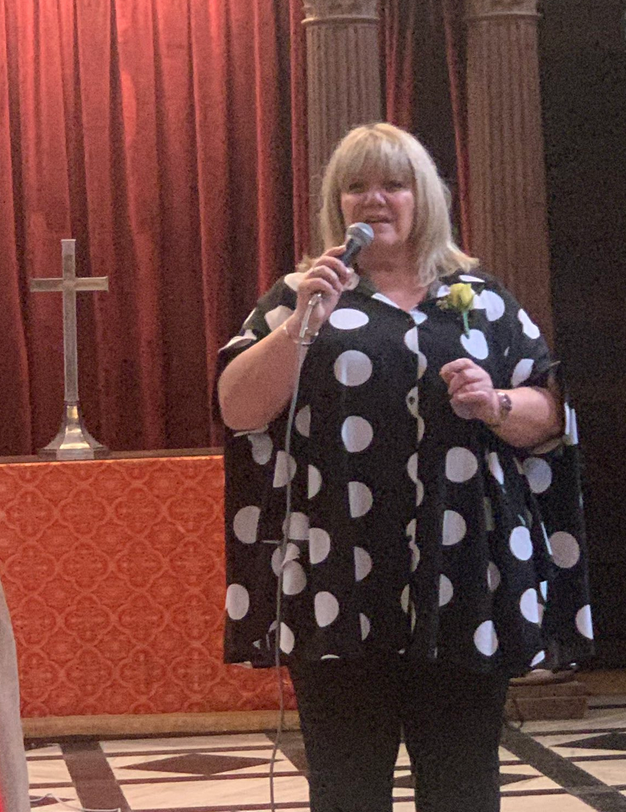
And for Saturday’s funeral, I also helped connect Ben to the wonderful Alison Jiear, who sang a thrilling “Amazing Grace”. It was a truly beautiful send-off to what someone accurately described as “a force of nature”; I was part of the Dewynters contingent, of course (pictured below).
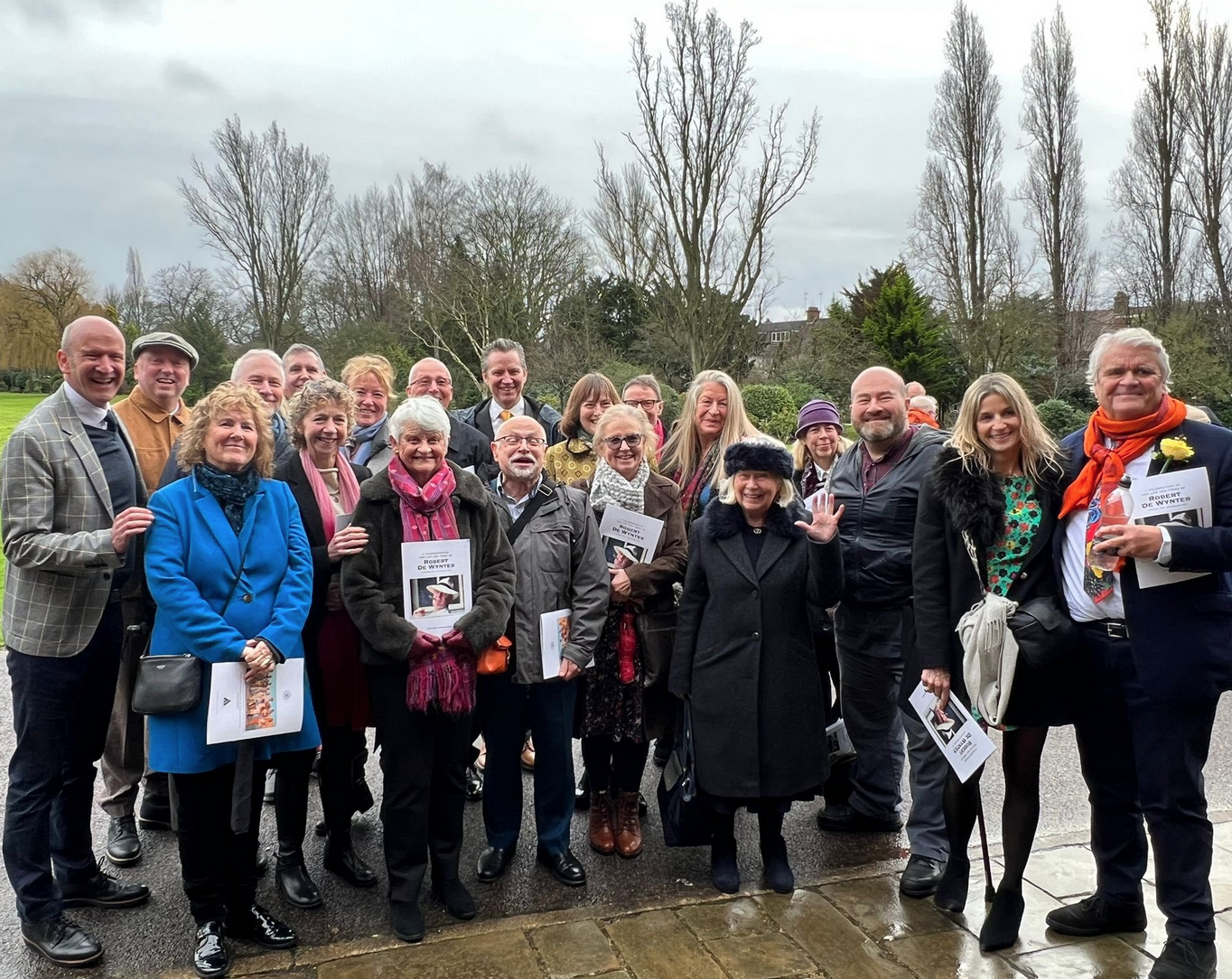
But it was also wonderful to hear from some of his AA fellows about the impact he’d made on their lives, too.
In WICKED, Stephen Schwartz wrote these wise words in his song “For Good”:
I’ve heard it said that people come into our lives
For a reason, bringing something we must learn
And we are led to those who help us most to grow
If we let them, and we help them in return
Well, I don’t know if I believe that’s true
But I know I’m who I am today because I knew you
That was true for so many of us who gathered in the West Chapel at Golders Green Crematorium to send Robert off.
SHOWS AHEAD IN LONDON, SELECTED REGIONAL THEATRES AND ON BROADWAY
My regularly updated feature on shows in London, selected regional theatres and on Broadway is here: https://shentonstage.com/theatre-openings-from-w-c-january-16/
This week London sees the Off-West End bows for two shows first seen in New York: George Takei’s autobiographically inspired musical ALLEGIANCE, in which Takei himself stars, at Charing Cross Theatre (opening Tuesday) and Axel Edelman’s solo show JUST FOR US, at the Menier (opening Wednesday), as well as a transfer for Steven Moffatt’s THE UNFRIEND from Chichester’s Minerva to the Criterion (opening Thursday).
See you here on Friday
I will be back on Friday. If you can’t wait that long, I may also be found on Twitter (for the moment) here: https://twitter.com/ShentonStage/ (though not as regularly on weekends)

